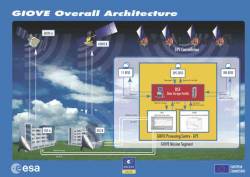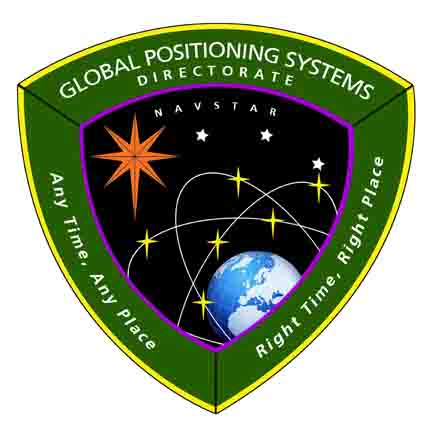
The European Space Agency (ESA) has awarded Thales Alenia Space Italia (TAS-Italia) two contracts for development of Galileo ground station receiver equipment.
One contract is for Galileo In-Orbit Validation Element (GIOVE) phase A/B ground station receivers capable of tracking the multiplex binary offset carrier (MBOC) signal that is common to both the Galileo Open Service (OS) and the new GPS L1 civil signal, which will be transmitted beginning with the GPS III generation of satellites.
The European Space Agency (ESA) has awarded Thales Alenia Space Italia (TAS-Italia) two contracts for development of Galileo ground station receiver equipment.
One contract is for Galileo In-Orbit Validation Element (GIOVE) phase A/B ground station receivers capable of tracking the multiplex binary offset carrier (MBOC) signal that is common to both the Galileo Open Service (OS) and the new GPS L1 civil signal, which will be transmitted beginning with the GPS III generation of satellites.
The other TAS-Italia contract is for the development of a receiver “breadboard” version of a new generation of Ranging and Integrity Monitoring Station (RIMS) receivers.
The GIOVE MBOC receiver will be capable of managing GPS channels on L1 and L2P, Galileo channels on L1, E5a, E5b and E6, and GIOVE channels including the MBOC modulation on L1. The receiver will incorporate configurability features for test purposes.
TAS-Italia’s MBOC receivers will be installed in an existing Galileo Experimental Sensor Station (GESS) at ESA/ESTEC in Noordwijk, The Netherlands, and another in Italy on a site to be defined by the Italian Space Agency (ASI). The interest in this development is linked to the possibility of carrying-out early field tests of receiver components that will then be part of the Galileo Ground Mission Segment (GMS) Galileo Reference Chain (GRC) installed in each Galileo Sensor Station.
ASI is supporting this development in close cooperation with ESA. Thales Alenia Space Italia will be completely responsible for the definition, design, manufacturing, and test of the receivers.
In addition to the deployment of the GIOVE MBOC receivers, the contract also includes a parallel development of an RF application specific integrated circuit (ASIC) prototype specifically designed for the demanding performance requirements of ground reference stations. This development aims at a miniaturization and optimization of this class of receivers in view of future multi-frequency, multi-constellation systems.
development of the new generation of RIMS receiver is part of the ESA GNSS Evolution program designed to pave the way for the evolution of the European navigation infrastructure. The new RIMS receiver will be capable of managing GPS channels on L1, L2, and L5; Galileo channels on L1, E5a, E5b, and E6; GLONASS channels on L1; and satellite-based augmentation system (SBAS) geostationary satellite channels on L1 and L5.
The evolution of the RIMS concept is linked to the definition of a Multi-Regional System (MRS) as the natural evolution of the European Geostationary Navigation Overlay Service (EGNOS) in the context of the advent of new GNSS constellations and frequencies. The new generation RIMS receiver will be also an element of the Support Platform for EGNOS Evolutions and Demonstrations (SPEED) under development in the frame of the MRS study.
Thales Alenia Space Italia will lead a consortium composed of companies from France, Spain, and Italy.
Thales Alenia Space Italia will exploit its experience based on the previous development of EGNOS RIMS B receivers as well as the on-going development of the GRC and GMS.





